
What Are the Best Nutrients to Support Faster Chronic Wound Healing?
What Are the Best Nutrients to Support Faster Chronic Wound Healing?
Table of Contents
ToggleQuick Facts About Nutrients for Faster Chronic Wound Healing
- Protein Rebuilds Tissues – Essential for repairing damaged cells and boosting immune function for better recovery.
- Vitamin C Speeds Collagen Production – Supports skin strength, immunity, and faster healing while reducing infection risk.
- Zinc & Vitamin A Aid Cellular Repair – Zinc boosts wound closure, while Vitamin A enhances skin regeneration and immune defense.
- Iron & Omega-3s Improve Circulation & Inflammation – Iron delivers oxygen to wounds, and Omega-3s help control harmful inflammation.
- Hydration Powers Nutrient Delivery – Adequate water intake ensures nutrient absorption and healthy skin for optimal healing.
When it comes to healing chronic wounds, your body needs more than just medical treatment, it needs the right nutrition too. In this blog, we’ll walk you through the best nutrients that play a crucial role in supporting and speeding up wound healing. We’ll also discuss how they work, the signs of deficiency, and foods that are rich in these nutrients.
Let’s get started with the basics.

Why Nutrition Matters in Chronic Wound Healing
Many people are not aware that wound healing is not just about cleaning and dressing the wound. The body requires energy, proteins, vitamins, and minerals to repair damaged tissues. Poor nutrition can delay healing or even worsen the wound. For chronic wounds, which don’t heal in the expected time frame, usually over 4 weeks, getting the right nutrients becomes even more essential. Whether it’s a diabetic ulcer, pressure sore, or venous leg ulcer, nutrition can make a significant difference. If you or your loved ones are struggling with a chronic wound, we’ll guide you on how to find the right care support, including specialized chronic wound care services in the USA.
1. Protein – The Building Block of Healing
Protein is the most essential nutrient for tissue repair. It helps in rebuilding damaged tissues and supports immune function. Inadequate protein can result in slow wound healing and frequent infections.
Good sources:
- Eggs
- Chicken
- Fish
- Lentils
- Greek yogurt
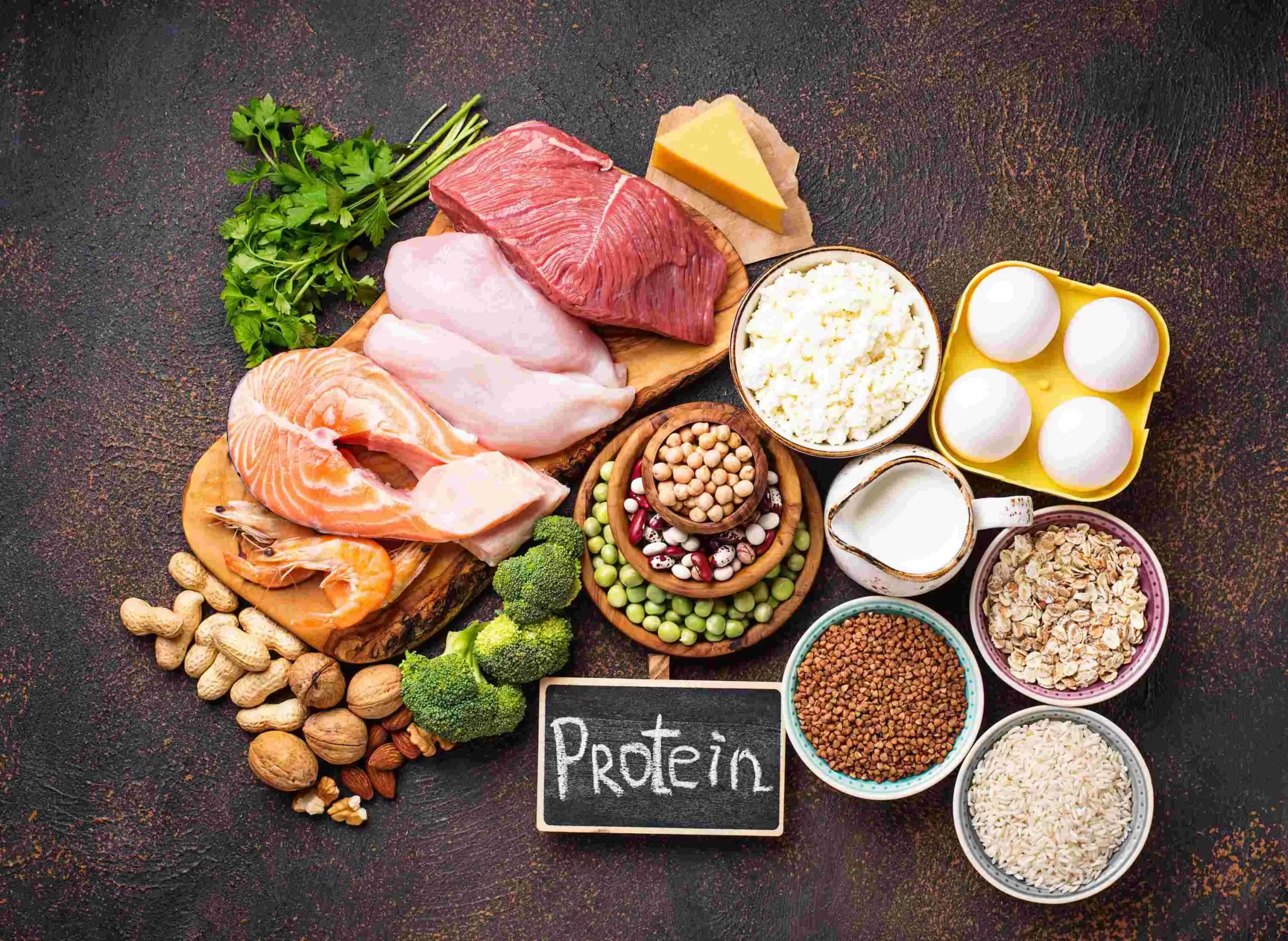
Tip: If your wound is not healing as expected, increasing your protein intake under medical guidance can support better recovery.
2. Vitamin C – For Collagen Production
Vitamin C is crucial for collagen synthesis, which is essential for skin regeneration and strength. It also enhances immunity and fights off infections that can delay healing. The signs of VitaminC deficiency are Easy bruising, Slow healing wounds, Bleeding gums.
Best sources:
- Oranges
- Strawberries
- Bell peppers
- Broccoli
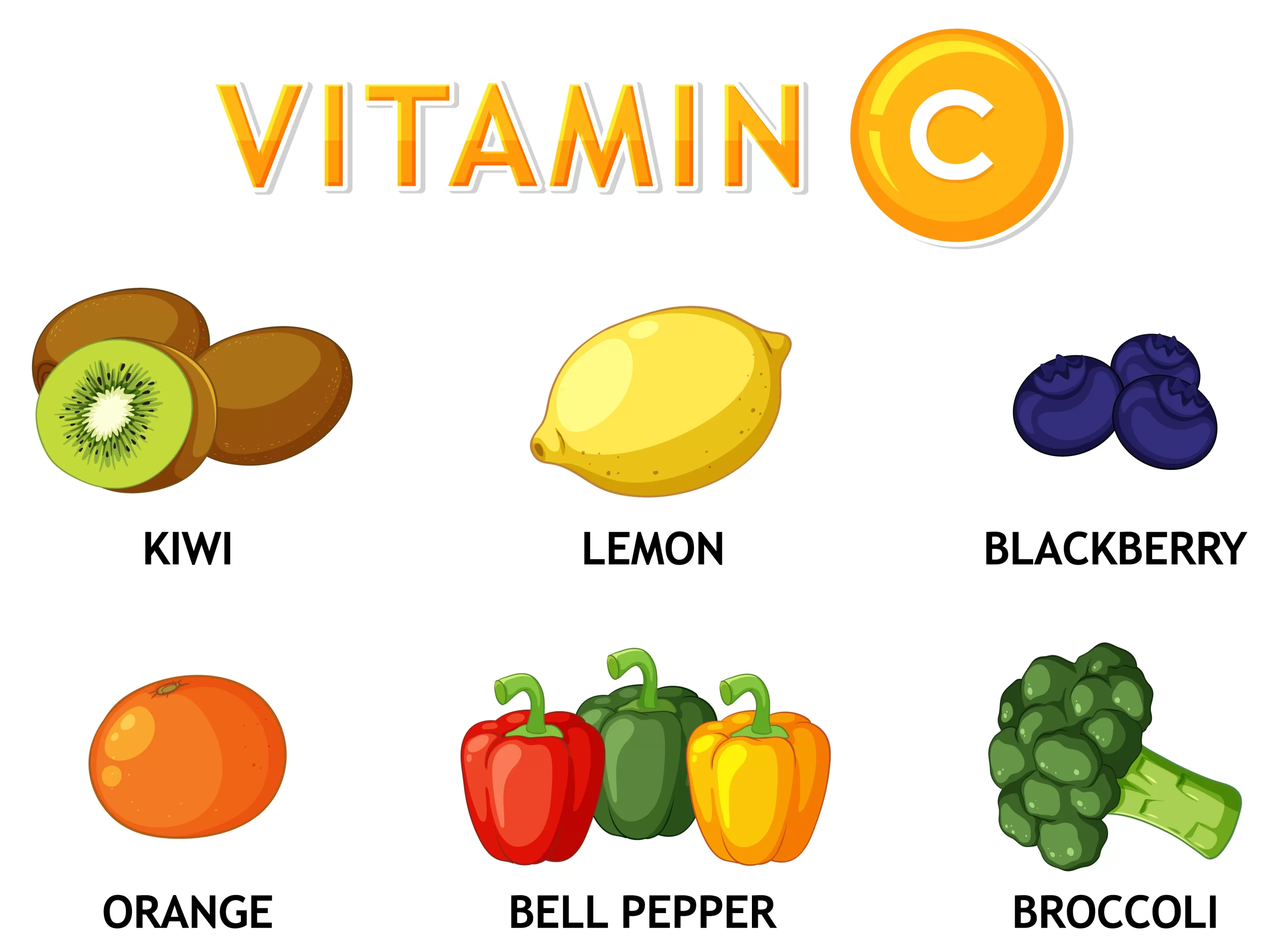
Including vitamin C-rich fruits and vegetables in your daily diet can promote faster recovery.
3. Zinc – The Wound-Healing Mineral
Zinc plays an important role in cellular repair and immune function. It’s commonly used in clinical wound care for its healing benefits.The signs of Zinc deficiency are Poor appetite, Delayed wound healing, White spots on nails
Sources to include:
- Nuts and seeds
- Whole grains
- Dairy
- Meat
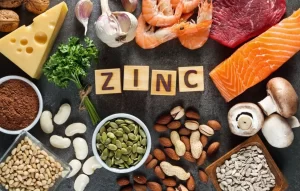
If you’re undergoing treatment for a chronic wound, your specialist might even recommend zinc supplements.
4. Vitamin A – For Skin Repair and Immune Boost
Vitamin A helps the skin form new cells and supports the immune system to fight infections. It also supports collagen production, making it a dual-action vitamin for wound healing.
Found in:
- Carrots
- Sweet potatoes
- Spinach
- Liver
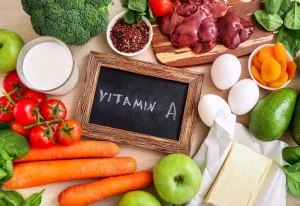
This fat-soluble vitamin is especially useful in healing pressure ulcers and surgical wounds.
5. Iron – For Oxygen Delivery
Iron helps deliver oxygen to the wound area, which is crucial for cell regeneration. Without enough oxygen, your wound won’t heal properly.
Iron-rich foods:
- Red meat
- Beans
- Tofu
- Dark green leafy vegetables
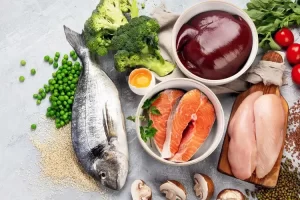
Iron deficiency is common, especially in older adults or those with chronic conditions. If you feel tired and your wound is healing slowly, get your iron levels checked.
6. Omega-3 Fatty Acids – For Inflammation Control
While inflammation is a natural part of healing, too much of it can be harmful. Omega-3s help regulate inflammation and support the body’s immune system during the healing process.
Sources include:
- Fish like salmon or mackerel
- Chia seeds
- Walnuts
- Flaxseeds
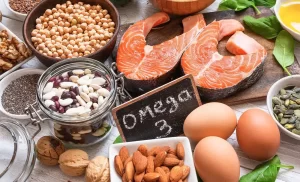
Adding Omega-3s to your diet can reduce prolonged inflammation and support smoother healing.
7. Hydration – Often Overlooked, Always Important
Water is often overlooked, but staying hydrated helps nutrients move through the body effectively. It also keeps skin healthy and supports proper blood circulation, both essential for wound healing.
Make sure to drink at least 8–10 glasses of water a day, more if you’re active or living in warmer climates.
Final Thoughts
Healing chronic wounds isn’t just about what you apply on the outside, it’s equally about what you put inside your body. Nutrients like protein, vitamin C, zinc, iron, and omega-3s all work together to help your skin repair, fight infections, and bounce back faster.
If you or your loved one is dealing with a non-healing wound, don’t delay. The right support and treatment can make all the difference. Contact us today to speak with our wound care specialists and take the next step toward healing.
Frequently Asked Questions:
1.Why is nutrition important for chronic wound healing?
Proper nutrition provides energy, protein, vitamins, and minerals essential for tissue repair, immunity, and faster healing.
2. Which nutrient is most important for wound healing?
Protein is the key nutrient, as it helps build new tissue and strengthen the immune system.
3. How does Vitamin C help in wound healing?
Vitamin C promotes collagen synthesis, strengthens skin tissue, and enhances immunity to prevent infections.
4. Can zinc speed up chronic wound healing?
Yes, zinc supports cell repair, immune function, and is often used in clinical wound care for its healing benefits.
5. What happens if I don’t get enough protein while healing a wound?
Lack of protein can slow tissue repair, increase infection risk, and delay overall wound healing.
6. Which foods are best for chronic wound healing?
Foods rich in protein (eggs, chicken), Vitamin C (oranges, bell peppers), zinc (nuts, meat), and iron (leafy greens, beans) are excellent.
7. Do Omega-3 fatty acids help in wound recovery?
Yes, Omega-3s control excessive inflammation and support the immune system during the healing process.
8. How does hydration affect wound healing?
Staying hydrated helps transport nutrients, maintain skin health, and improve blood circulation, all vital for healing.
9. Can vitamin deficiencies cause wounds to heal slowly?
Yes, deficiencies in Vitamin C, A, or zinc can significantly delay the healing process and increase infection risk.
10. Should I take supplements for faster wound healing?
It depends on your nutritional status; always consult a wound care specialist before taking supplements.


